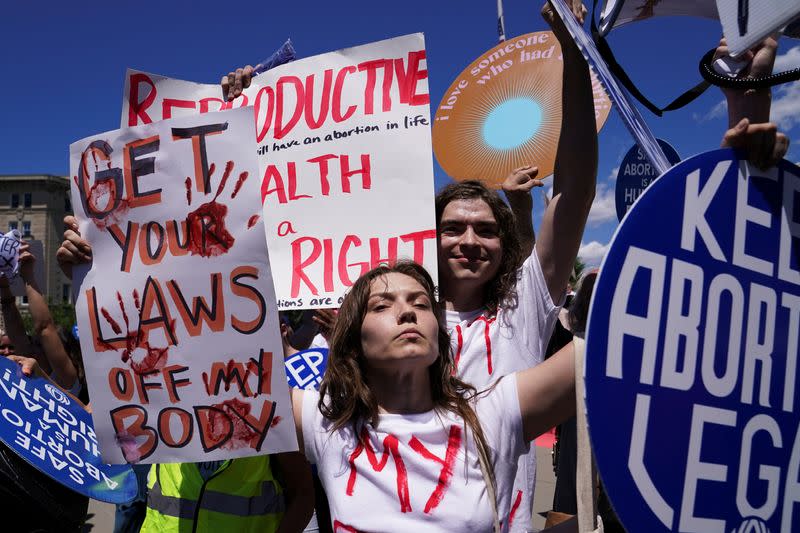Iowa can enforce six-week abortion ban, US state's top court rules

By Brendan Pierson
(Reuters) -Iowa can enforce a ban on most abortions after about six weeks of pregnancy, the state's highest court ruled on Friday, reversing a lower court order that had blocked the law from taking effect.
The 4-3 ruling from the Iowa Supreme Court held that the law does not violate citizens' rights under the state constitution, rejecting a lawsuit by Planned Parenthood.
It will be 21 days before the decision can take effect, and abortion will remain legal in the first 20 weeks of pregnancy until then, according to Planned Parenthood.
"We are devastated by today's ruling and the harmful consequences it will have on essential health care in Iowa," said Planned Parenthood President Alexis McGill Johnson in a statement.
The newly revived law was passed in a special legislative session in 2023, after the state Supreme Court failed to revive a separate 2018 abortion ban in a 3-3 deadlock, with one justice not participating for unspecified reasons. The legislature's Republican majority rebuffed Democrats' efforts to expand the law's exceptions, including a proposed exception for pregnant children aged 12 or under.
The law bans abortion after fetal cardiac activity is detected. That is usually around six weeks, before many people know they are pregnant.
It makes exceptions for rape, incest and fetal abnormality that a doctor reasonably believes is incompatible with life, and in the event that continuing the pregnancy would create a serious risk of irreversible harm to the woman's body.
Iowa Governor Kim Reynolds, a Republican, said in a statement that there was "nothing more worthy of our strongest defense than the innocent unborn" and that she was "glad that the Iowa Supreme Court has upheld the will of the people of Iowa."
Justice Matthew McDermott, writing for the majority in Friday's opinion, said there was no fundamental right to abortion under the state constitution because such a right was not "deeply rooted" in the state's "history and tradition." He noted that the state had banned abortions since adopting its constitution in the 1840s until the U.S. Supreme Court's 1973 Roe v. Wade ruling establishing a right to abortion nationwide.
McDermott said the six-week ban was "rationally related to the state's legitimate interest in protecting unborn life."
Chief Justice Susan Christensen, in a dissent, wrote that the decision "strips Iowa women of their bodily autonomy."
"The majority's rigid approach relies heavily on the male-dominated history and traditions of the 1800s, all the while ignoring how far women's rights have come since the Civil War era," she wrote.
Iowa, like other Republican-controlled states, moved to ban abortion after the U.S. Supreme Court's 2022 ruling overturning Roe v. Wade.
(Reporting By Brendan Pierson in New York; Editing by Chizu Nomiyama, Alexia Garamfalvi and Josie Kao)


